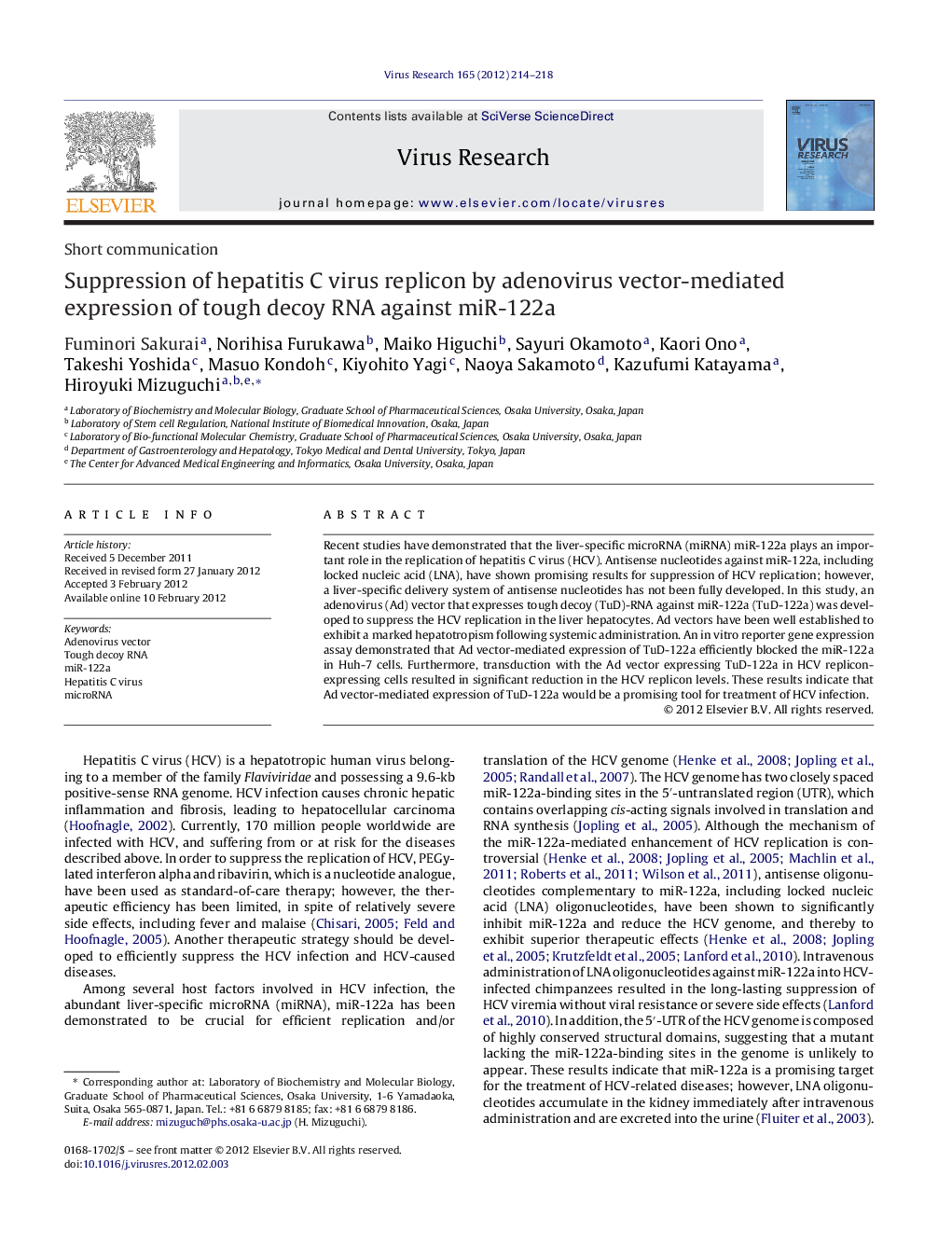| Article ID | Journal | Published Year | Pages | File Type |
|---|---|---|---|---|
| 6143200 | Virus Research | 2012 | 5 Pages |
Recent studies have demonstrated that the liver-specific microRNA (miRNA) miR-122a plays an important role in the replication of hepatitis C virus (HCV). Antisense nucleotides against miR-122a, including locked nucleic acid (LNA), have shown promising results for suppression of HCV replication; however, a liver-specific delivery system of antisense nucleotides has not been fully developed. In this study, an adenovirus (Ad) vector that expresses tough decoy (TuD)-RNA against miR-122a (TuD-122a) was developed to suppress the HCV replication in the liver hepatocytes. Ad vectors have been well established to exhibit a marked hepatotropism following systemic administration. An in vitro reporter gene expression assay demonstrated that Ad vector-mediated expression of TuD-122a efficiently blocked the miR-122a in Huh-7 cells. Furthermore, transduction with the Ad vector expressing TuD-122a in HCV replicon-expressing cells resulted in significant reduction in the HCV replicon levels. These results indicate that Ad vector-mediated expression of TuD-122a would be a promising tool for treatment of HCV infection.
